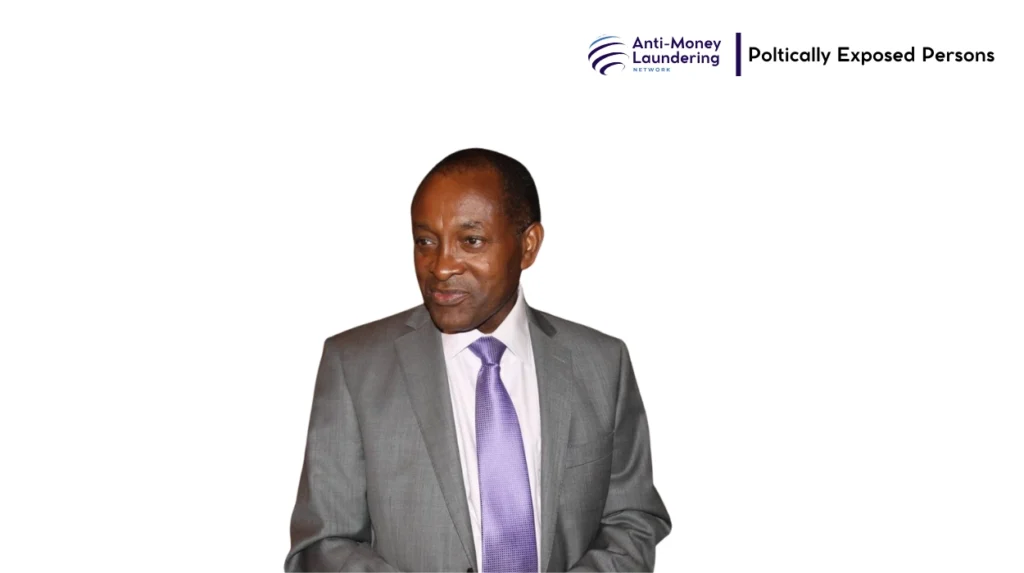Aires Bonifácio Baptista Ali is a prominent Mozambican politician known for his extensive career in public service, including his tenure as Prime Minister of Mozambique from January 2010 to October 2012. Over the years, he has held a variety of significant positions in governance and diplomacy, playing a central role in Mozambique’s political and educational landscapes. His name also appears in global financial investigations, highlighting the complexities and challenges surrounding political transparency and accountability in his country. This article delves deeply into the life, career, and legacy of Aires Bonifácio Baptista Ali, providing a comprehensive evergreen profile.
Early Life and Background
Born on December 6, 1955, Aires Bonifácio Baptista Ali hails from the northern Mozambican province of Niassa. His place of birth is the district of Sanga, specifically in the lands of Nbeba, within the settlement of Unango. Growing up, Ali spent his formative years in Lichinga, the provincial capital of Niassa, before relocating to Maputo (formerly Lourenço Marques), Mozambique’s capital city, as his family moved for professional reasons. His upbringing in two distinct regions of Mozambique gave him a broad perspective on the country’s diverse socio-economic contexts.
Ali’s family background reflects a modest yet ambitious lineage. His father transitioned from a primary school teacher to a nurse, indicating the family’s dedication to perseverance and public service. Details about the Aires Bonifácio Baptista Alifamily, including information about his children, are limited, which adds to the private nature of his personal life, a characteristic often noted for public figures in Mozambican politics.
Personal Life
Although detailed publicly available information about Aires Bonifácio Baptista Alichildren or his spouse is scarce, it is understood that he maintains a relatively low-profile family life despite his high-profile political career. This approach is common among Mozambique’s political elites, allowing them to protect their families from public scrutiny and political pressures.
Career and Achievements
Aires Bonifácio Baptista Ali began his career as an educator, working as a teacher at the FRELIMO Secondary School in Namaacha starting in 1976. He quickly rose to administrative roles, becoming the principal of the Francisco Manyanga Secondary School in Maputo. By the 1980s, Ali was deeply involved in provincial education administration, serving as the Director of Education in Nampula Province.
In the 1990s, Ali took on national responsibilities in education, serving as Head of Office for the Minister of Education and Culture and later as the National Director of School Social Welfare Programs. In 2000, he was appointed Governor of Inhambane Province, a role he held until 2004. His governance ambitions were part of a larger framework of regional development efforts in Mozambique.
By 2005, Ali had ascended to the role of Minister of Education, where he was responsible for overseeing policies aimed at expanding educational access and quality. His work included initiatives to establish schools in Mozambique’s most remote regions, showing a commitment to social development.
On January 16, 2010, he was appointed Prime Minister of Mozambique, a position he held until October 8, 2012. As Mozambique Prime Minister, he faced the critical task of stabilizing the nation’s economy and political alliances. He notably led efforts to engage new international partners in Asia, with China becoming a key ally during his term.
After his premiership, Ali was appointed Ambassador to China in June 2016, underlining his ongoing diplomatic significance and international role.
Lifestyle, Wealth, and Assets
Public information about the net worth of Aires Bonifácio Baptista Ali is not concretely documented. Like many political figures in Mozambique, his financial details remain largely undisclosed, leading to speculation in some quarters. Reports and leaks, such as the Pandora Papers, have linked him to offshore financial activities, suggesting an engagement with wealth management through less transparent channels.
Details on his lifestyle, including the ownership of any notable assets such as private residences, yachts, or luxury properties, remain private. This secrecy is consistent with many politically exposed persons (PEPs) in Mozambique who often operate discreetly to protect their assets from public and legal scrutiny.
Influence, Legacy, and Global Recognition
Aires Bonifácio Baptista Ali’s influence within Mozambique and beyond is multifaceted. As Prime Minister, he was pivotal in expanding Mozambique’s diplomatic outreach, particularly in Asia, where he nurtured economic partnerships critical for Mozambique’s development.
Domestically, his legacy in education stands out as a testament to his commitment to social progress. His work in establishing schools in rural provinces contributed to better educational access in Mozambique’s most underserved areas.
Despite this, Ali’s name is also linked to broader discussions on transparency and governance in Mozambique. His profile is often cited in global investigations of elite wealth, signaling the complex duality of his political stature and the challenges of governance in developing countries.
Financial Transparency and Global Accountability
As a prominent Politically Exposed Person (PEP), Aires Bonifácio Baptista Ali exemplifies the challenges faced by Mozambique and similar nations in enforcing financial transparency and accountability. His inclusion in the Pandora Papers, which revealed offshore holdings and financial secrecy among the political elite, highlights persistent risks of corruption and impunity.
Mozambique’s political system has been criticized for enabling the concentration of wealth and power among a small elite, often shielding them from scrutiny. Ali’s case underscores the problematic intersection between political authority and financial misconduct, raising important questions about governance reforms and anti-corruption measures necessary to tackle these entrenched structures.
The life and career of Aires Bonifácio Baptista Ali reflect a complex portrait of leadership in Mozambique. His significant contributions to education, governance, and diplomacy mark him as a key figure in the nation’s post-independence development. However, his association with offshore financial leaks and the opaque political environment in Mozambique present critical challenges to the ideals of transparency and ethical governance.
As Mozambique continues to navigate its path towards sustainable development and global integration, figures like Aires Ali embody both the possibilities and the pitfalls of political power in emerging democracies. His story remains essential for understanding the dynamics of power, accountability, and reform in Mozambique.

